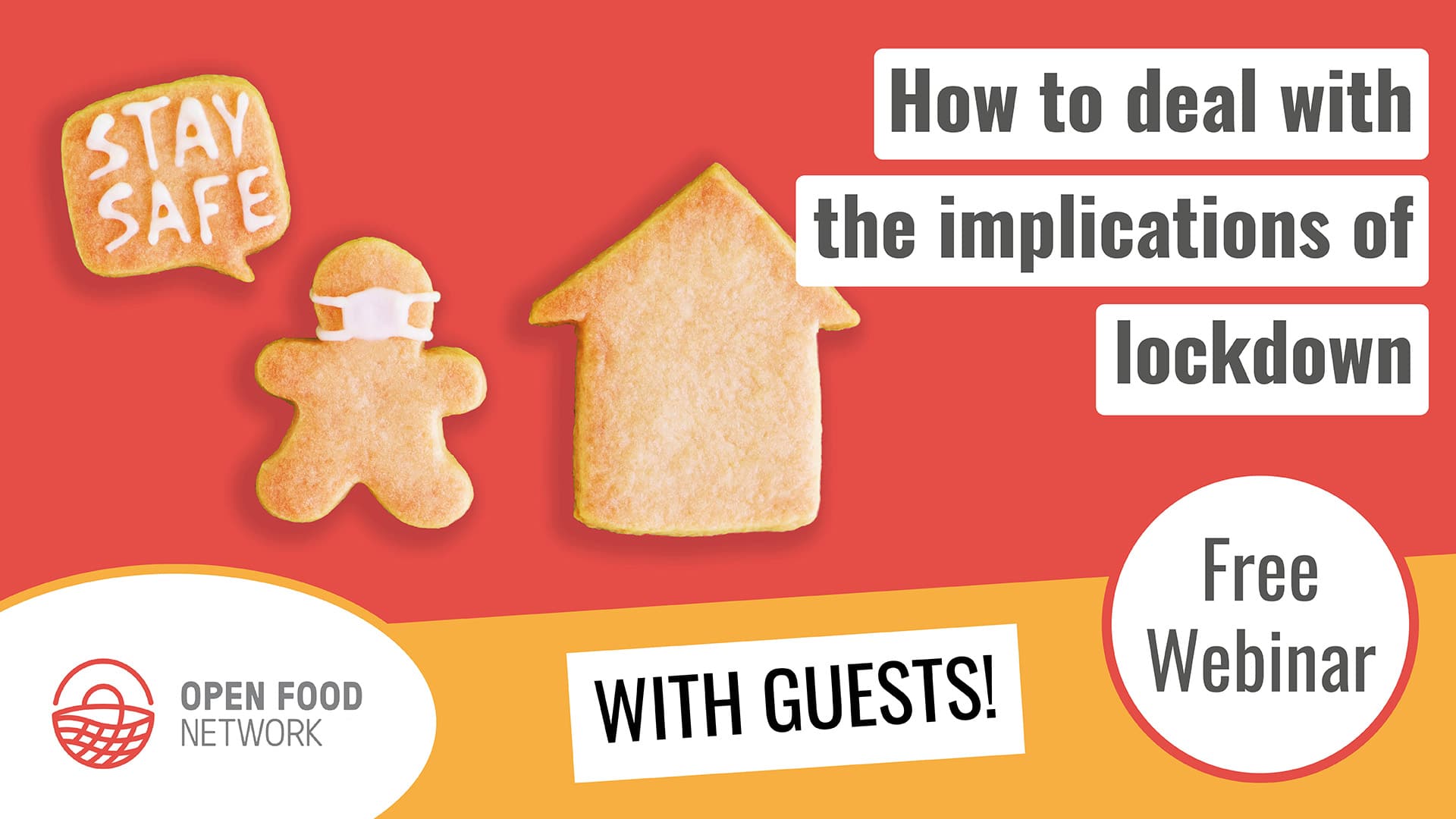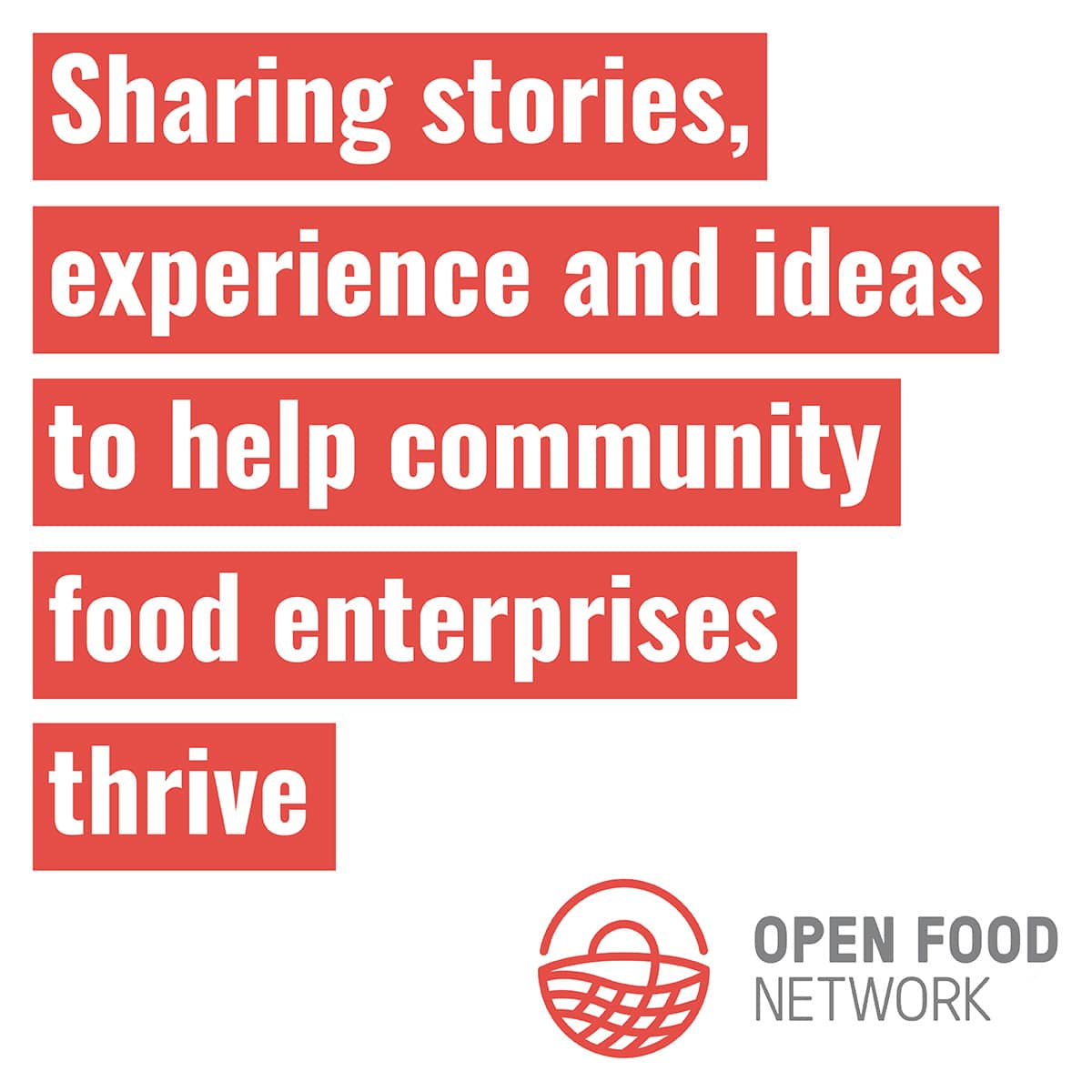What’s one advantage you are likely to have that supermarkets and big retailers don’t? The opportunity to build great relationships with your customers on an individual basis. And if you make the most of this advantage to develop an ongoing relationship with your customers, it is more likely they will keep coming back to your food enterprise in the long term.
And research shows it is beneficial to your food enterprise when you take action to improve customer retention. For a start, a 5% increase in customer retention can lead to a 25% increase in profits. What’s more, highly-engaged customers buy 90% more often and spend on average 60% more per transaction.
With this in mind, here are some ideas for how you can improve your customer relationships.
Understand your customers
For a start, take action to gather direct feedback. This will help you to understand your customers more, which will help you build more loyal relationships with them. Because when you know why your customers shop with you and what they like and dislike about your enterprise, you are in a much better position to delight them. And delighted customers will usually come back again and again – and talk to their friends about you.
What’s more, requesting feedback shows your customers you care about them. And there is plenty of research to show customers are more loyal to businesses who value them. So, even if you think you already know your customers really well, it is worthwhile to check in with them once in a while.
To get started, here are three things you could try:
One: Ask your customers face to face when you see them or in a personal email from you to them. This works best if you get the timing right, so try asking one or two relevant questions directly after a customer interaction.
Two: Send out a survey to your email list and share it on your social media. Most people start rushing their answers and even abandon a survey altogether if it is too long. Try to keep your surveys to around 5 questions max – and make these questions count!
- Tip: Use open ended questions to get more useful answers than “yes” or “no”. Open ended questions look like: “tell us what you like about shopping with us” or “describe what you find difficult about shopping with us”.
- Tip: For your new customers, it would be useful to understand their motivation for beginning to shop with you. What were the barriers before Covid-19? If you are losing customers, who is leaving and why? Are there any pain points with your service or produce? What can you improve?
Three: Keep a lookout and make a note of any social media comments which contain feedback. If you find any negative feedback or comments, be proactive and respond positively.
By acknowledging and acting to resolve any issues you show your enterprise is responsible, reliable and trustworthy. If the feedback is public, don’t panic! Showing an empathic, helpful and capable response could help you to win the trust of other customers who see the positive interaction.

Bonus tip:
Email everyone who gave positive feedback to thank them for taking part and explain how it helps you to improve what you are doing. Here is a step-by-step guide you could follow:
Step one: Remind them why it is great they support your food enterprise – they are contributing to a better, fairer food system whilst also supporting their local community to thrive. And they are helping you to continue to supply delicious, fresh and nutrient dense produce, for example.
Step two: Tell them you were delighted with their positive feedback and are hoping they could help out even more by giving you a testimonial you can share. Explain why this is so helpful (it will help you to spread the word and help you to grow, for example) and is very much appreciated.
Step three: Give a series of questions to help guide the direction of the testimonial – the following questions are from Story Brand. Explain they are just a guide to make it easier for them to think of what to write/say and they can take or leave any question they like:
- What was your biggest challenge with regards to buying local/sustainable/healthy food prior to purchasing from us?
- How did that challenge make you feel?
- What changed after purchasing/joining?
- What specific results/benefits/good feelings can you share?
- What would you say to somebody who is on the fence about purchasing/joining?
- Anything else to add?
Step four: Ask them for permission to feature their testimonial in your marketing (social, email, website etc.) and thank them again!
Establish trust

A recent study shows there are three areas you can generate trust with your customers:
- Product experience
- Customer care
- Your impact on society
Here is a guide to each of these in more detail:
Product experience
Customers want to know they can rely on you to offer them quality products. If the quality of your offering dips, shoppers can stop shopping. So how can you maintain a good customer relationship when things go wrong?
In the event of a mistake or quality issue, it is vital to manage your customer’s expectations with empathy, a positive mindset and a proactive approach. Tackle any objections and issues as soon as you can – preemptively if possible!
For example, if you realise you have mis-packed a box, what can you do to rectify the situation? It’s a good idea to have a pre-emptive plan for complaints like this. You could use the following framework:
- Listen
- Clarify and acknowledge: make sure you have understood the issue and confirm you understand to your customer
- Offer a solution
If you often have a similar problem arise, consider how you could tackle the issue on your social channels or emails. For example, if you are out of stock on a popular item or do not have enough stock to fulfil all the orders. A preemptive explanation could help you manage your customer’s expectations so they are not as disappointed – or lose trust – if they are affected.
Customer care
Developing loyal customer relationships is about more than your customer service efforts. Customer services are normally focused around a transaction, whereas great customer relations means to care and connect with your customers throughout their relationship with your enterprise.
Show your customers you care about and value them as people with every interaction. This is important because 79% of consumers say brands must actively demonstrate “they understand and care about me” before they consider purchasing.
In view of this, find ways you can ensure your customer feels like:
“a person first and a customer second”
You could start by ensuring you are showing empathy and connection in your interactions – both online and in person. Additionally, make sure to humanise the content and tone of your social posts, emails and any materials you share with your customers.
Keep in mind the challenges we all face daily. At the current time, particularly important, are the demands that the coronavirus pandemic and its associated lockdowns have placed on all our lives. For this reason, it may be helpful to remember the ‘4Cs of COVID-19’ in your communications and perhaps to focus your messaging on:
- Cleanliness
- Contactless
- Community
- Compassion
We will be covering this in more detail for next week’s webinar: “How to deal with the implications of lockdown – with guest hubs” – click this image to the right for more details and to join.

Your impact on society
Many of your customers also want to see a resilient local food economy with social and ecological health at its core. Help your customers to feel that by shopping with you they are contributing to a better food system.
Share how you make a positive impact on your community. Show that you share the same values and care about the same issues your customers’ do. This will help your customers to trust you and form a deeper emotional attachment with your enterprise.
Decide what issues you want to align yourself with as an enterprise and how you will communicate this. In a recent survey, 51% of UK-based respondents said it was a deal breaker or deciding factor for them if a brand actively supports or speaks out on an issue they care about.
With this in mind, don’t be afraid to express what you believe in as an enterprise!
Personalise your customer’s shopping experience
Research shows that people are more likely to shop with businesses who treat them in a personal manner. For one thing, personalisation builds trust as it shows your customers you care about them on an individual basis. There are various ways you can use the Open Food Network platform to help you offer your customers a more personalised experience with your shopfront.
You can use tags and tag rules to personalise how different customers access different features of your shop.
This means you will be able to customise your customer’s shopping experience by creating options which are only visible to a subset of (tagged) customers. Bespoke shipping and payment methods are a great place to start with personalising what you offer your customers. Here are some examples of what you can do:
Personalised delivery options:
- You can group existing customers by postcode and offer a delivery fee based on the different catchment area for your customers.
- You could offer a discounted delivery to neighbourhoods. This has an additional benefit of encouraging and rewarding word of mouth recommendations from your existing customers, who would benefit from cheaper delivery by advocating to their neighbours.
- You can set up a drop-off point with a lower delivery charge so that a group of shoppers all collect from one local point – this could be someone’s garage or shed.
- Offer discounted delivery to vulnerable & elderly customers.

Personalised payment options:
- Automated online payment methods by credit/debit card or Paypal have many benefits for your business – both in terms of payment security (receiving payment prior to delivery/collection) and time management. However, after talking to your customers you may find that online payment does not suit everyone.
- For example, some customers may prefer to use cash as a way of keeping track of their weekly budget, others may not have a bank account and some may distrust internet shopping portals. You could allow a small selection of customers who you know and trust to pay by cash on collection or BACS.

Bonus:
Here is a video which covers this topic in more detail as well as sharing some of the great ways you can enhance customer shopping experience with the Open Food Network platform:
Offer subscriptions
Subscriptions are an automated, regular, repeating order placed on behalf of a customer. They can include any products from your shop and you can determine the range of subscription frequencies which you offer. Subscriptions on the OFN platform are managed by you as a business manager, not the customer themselves.
Setting up subscriptions for your customers will help you to offer them a reliable service. And as we have seen above, reliability is a vital component in generating customer trust. In addition, here are some other benefits to consider:
Advantages for your food business
- Regular income for your hub and suppliers
- Helps your suppliers plan their production each week
- Gets around the problem of customers forgetting to place an order before the order cycle closes
- Don’t forget, your subscription shoppers will receive an automatic email telling them their order has been placed when your order cycle opens. For customers who forget your shop’s weekly opening times, this automated email may act as a prompt; on reading the email to say that their regular order has been placed the customer might be more inclined to log into your shop and purchase the extra things they need that particular week.
Advantages for your customers

- Reduces anxiety about being able to source the food they need.
- Helps them to plan their household budget.
- Saves time if the customer generally buys the same things each week.

If you have any questions or would like to chat this through with a member of the OFN team then email us here: support@openfoodnetwork.org.uk
Show your customers you appreciate them
Appeal to your customer’s basic human need to be wanted and appreciated by offering benefits for customer loyalty. This could be as simple as a handwritten note or thank you email. Or, you could create a promotion which encourages commitment from your customers. For example:
- Spend over £30 in a week in January and get free delivery the following week.
- Order for 4 weeks in a row to get a 10% discount on your next shop.
Read a step by step guide to run a promotion of this nature here.
In the long run, as long as you are engaging with your existing customers in a way which makes them feel valued and understood, you are building trust. And building trust is one of the best ways to strengthen your relationship with your customers and generate more customer loyalty. Ultimately, this means the power in your hands to keep your customers shopping with your food enterprise through the new year and beyond.
Want more?
Do you want more resources and support for your existing food enterprise? If so, here’s what to do next:
- Join our ‘Thriving Food Hubs’ FB group.
- Join our ‘offerings of the week’ weekly bulletin email here for all our best & most valuable offerings of the week – including exclusive webinar invites, the latest OFN Release info and exciting updates, useful and practical content, specialist Q&As session invites and all our latest and best support offerings.

- Get started with The Open Food Network here
- Keep up to date with our latest news by joining our newsletter – just scroll to the bottom of this page for instructions to subscribe.
~By Kayleigh Reed
